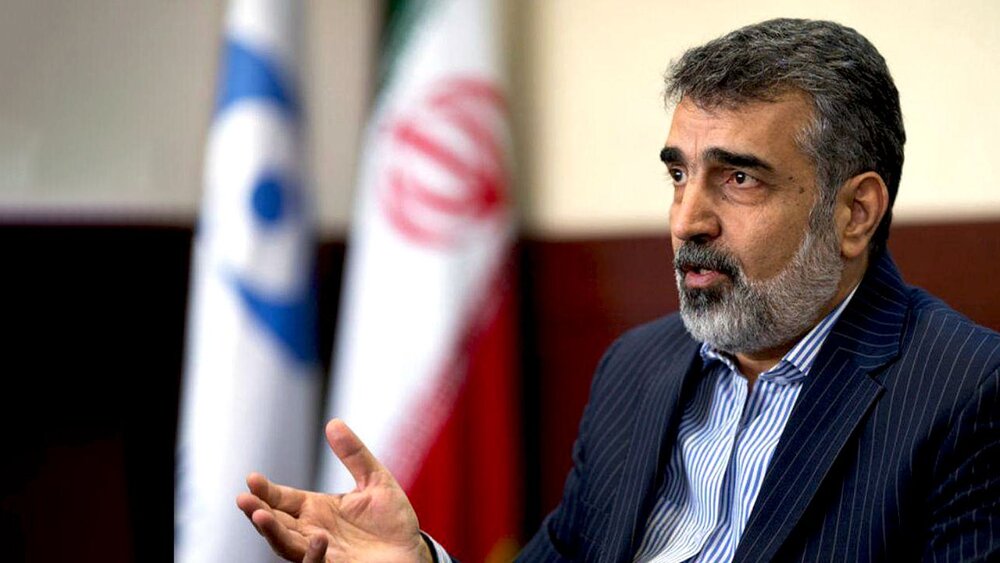Iran: We responded to IAEA’s queries regarding three sites in question

TEHRAN— Behrouz Kamalvandi, spokesperson for the Atomic Energy Organization of Iran (AEOI), spoke to the press on Tuesday to respond to the accusations made by Rafael Grossi, the Director General of the International Atomic Energy Agency (IAEA).
“Stating that there is a monitoring vacuum and the fact that this vacuum is getting bigger every day has no legal basis, because what Iran is not obliged to do today is related to the 5+1 agreement with the Islamic Republic of Iran, which is defined as the JCPOA document. The resurrection of the JCPOA must be in accordance with the Strategic Action Law for the Lifting of Sanctions (adopted by the Iranian parliament) which entails the lifting of sanctions and the implementation of the obligations of the JCPOA parties in order to protect the interests of the Iranian nation,” Kamalvandi stated.
He went on to note that the AEOI has fully cooperated with the three sites the Agency is calling “undeclared,” adding that the mere observation of contamination in a few places cannot be considered as a sign of the presence of undeclared nuclear materials.
“Iran has sent data and answers to the Agency's queries. It has also held dialogue sessions to resolve the ambiguities,” Kamalvandi further explained.
The spokesman pointed out that the IAEA should not make judgments based on some forged documents the Zionist regime provided to the Agency with specific political goals, noting that this type of judgment is against the principle of the UN nuclear watchdog’s neutrality and professionalism.
As per the nuclear spokesman, this type of conclusion is against the procedure and known standards of the IAEA even with similar cases in different countries.
Kamalvandi also noted that these statements are regrettably rooted in the biased political goals and objectives that the Israeli regime is leading.
In conclusion, he advised the IAEA and Iran's negotiating partners to the Vienna talks to avoid such “encounters,” which have not yielded any results so far.
The International Atomic Energy Agency Board of Governors started its quarterly meeting on Monday, with the Iran nuclear file, Ukraine’s Zaporizhzhia nuclear power station and AUKUS on its agenda.
However, the meeting of the politicized body ended with further accusations against Iran.
In conformity with its mandate, the IAEA must deal with the countries’ nuclear program in a quite scientifically and professionally.
At the beginning of the meeting, Grossi presented his report, which sounded quite political.
In his statement, Grossi said, “You have received my report entitled NPT Safeguards Agreement with the Islamic Republic of Iran. Unfortunately, since my previous report, despite the Agency’s stated readiness to engage with Iran without delay to resolve these issues, Iran has not engaged with the Agency. Consequently, there have been no developments in this reporting period and none of the outstanding issues have been resolved. Therefore, all of these safeguards issues remain outstanding.”
He added, “Unless and until Iran provides technically credible explanations for the presence of uranium particles of anthropogenic origin at three undeclared locations in Iran and informs the Agency of the current location(s) of the nuclear material and/or of the contaminated equipment, the Agency will not be able to confirm the correctness and completeness of Iran’s declarations under its Comprehensive Safeguards Agreement.”
In line with his politically motivated statement, Grossi claimed, “Because it has not yet done so, the Agency is not in a position to provide assurance that Iran’s nuclear program is exclusively peaceful.
Later in the day, he talked to reporters and met with a series of questions regarding Iran.
During the presser, he also said, “I regret this (Iran's so-called lack of cooperation). This is not new, when the Agency is demanding certain things and Iran doesn't want to or does not engage in the way one wouldn't expect, and they accuse (the IAEA) of politicizing. This is very straightforward. We found traces of uranium in places that were never declared, that were never supposed to have any nuclear activity, and we are asking questions. Explain to me why this is a political activity.”
Leave a Comment